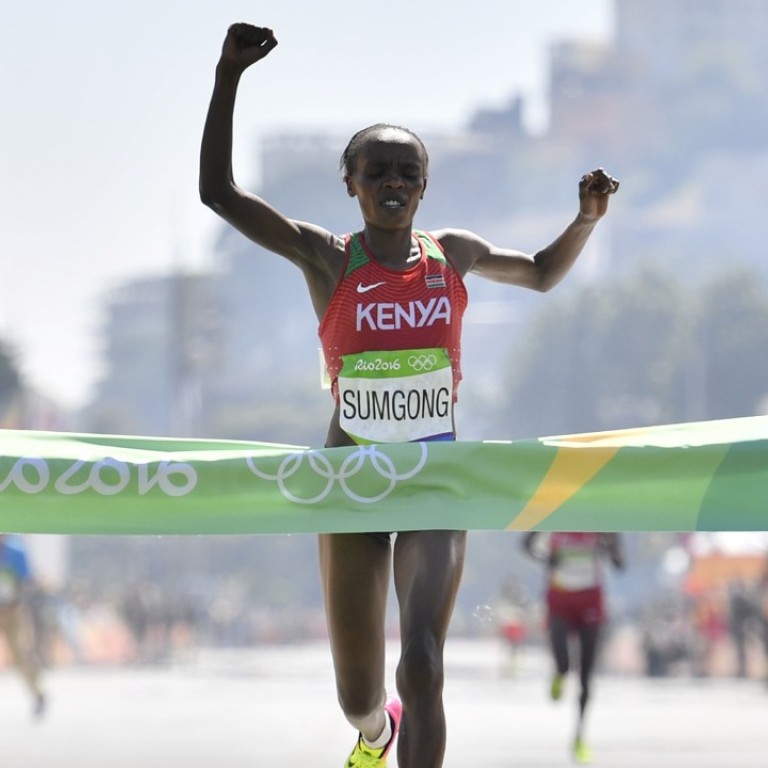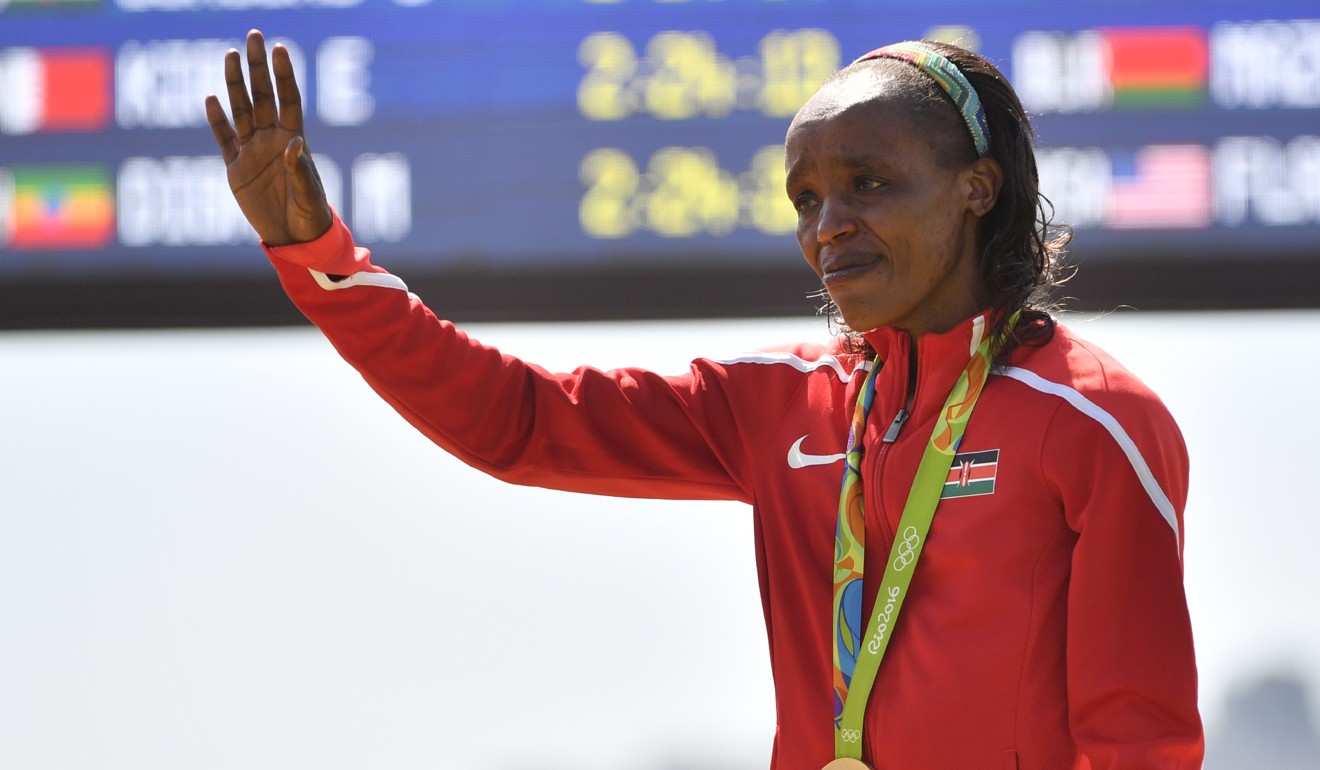
Rio marathon gold medallist Jemima Sumgong of Kenya banned four years for doping
A tribunal found no legitimate record of a hospital visit and treatment for an ectopic pregnancy, as claimed by Sumgong
Olympic marathon champion Jemima Sumgong was banned for four years after a doping tribunal rejected her explanation that the blood-boosting hormone EPO was in her system from being treated at a hospital in Kenya days before her failed test.
The tribunal found no legitimate record of the hospital visit and treatment for an ectopic pregnancy claimed by Sumgong, it said on Tuesday in a decision released by the Anti-Doping Agency of Kenya.
The panel ruling on her case said the 32-year-old Sumgong’s hospital story was “inconsistent at best.”
“We might go so far as to state that the athlete’s attempt to explain how the substance entered her body bordered on an attempt to deceive the panel,” the ruling said.
Sumgong became the first Kenyan woman to win Olympic gold in the marathon when she triumphed at last year’s Rio de Janeiro Games. She failed an out-of-competition test on February 28 and was banned for four years from April 3, the date her provisional suspension was announced.
It makes her ineligible for the 2019 world championships and the 2020 Tokyo Olympics.

Sumgong is the highest-profile athlete on a long list of Kenyans to be banned for doping in recent years. Her case follows that of Rita Jeptoo, who was the top women’s marathon runner in the world when she also tested positive for EPO in an out-of-competition test in Kenya in 2014. Jeptoo also received a four-year ban.
Sumgong waived her right to have her backup “B’’ sample tested and said she had taken EPO unintentionally after visiting Kenyatta National Hospital in Nairobi six days before her doping test to be treated for an ectopic pregnancy. She claimed she was suffering from severe abdominal pain and was given a blood transfusion and unidentified medication by an unnamed doctor.
The Olympic champion couldn’t provide the name of the doctor who supposedly treated her or reliable documents showing she was admitted to the hospital, the tribunal said. It said documents she provided were denounced as fake by the hospital.
The hospital visit was not disclosed by Sumgong at the time of the doping test. She said that was because of the “taboo” surrounding ectopic pregnancies and she wanted to hide it from her husband, who is also her manager.
The only record the hospital had of a visit by Sumgong was in April, when she inquired about treatment for ectopic pregnancies.
The Anti-Doping Agency of Kenya said it believed Sumgong was taking EPO ahead of the defence of her London Marathon title in April.
Sumgong has also won the Rotterdam and Las Vegas Marathons and finished runner-up in the Boston, Chicago and New York races.

